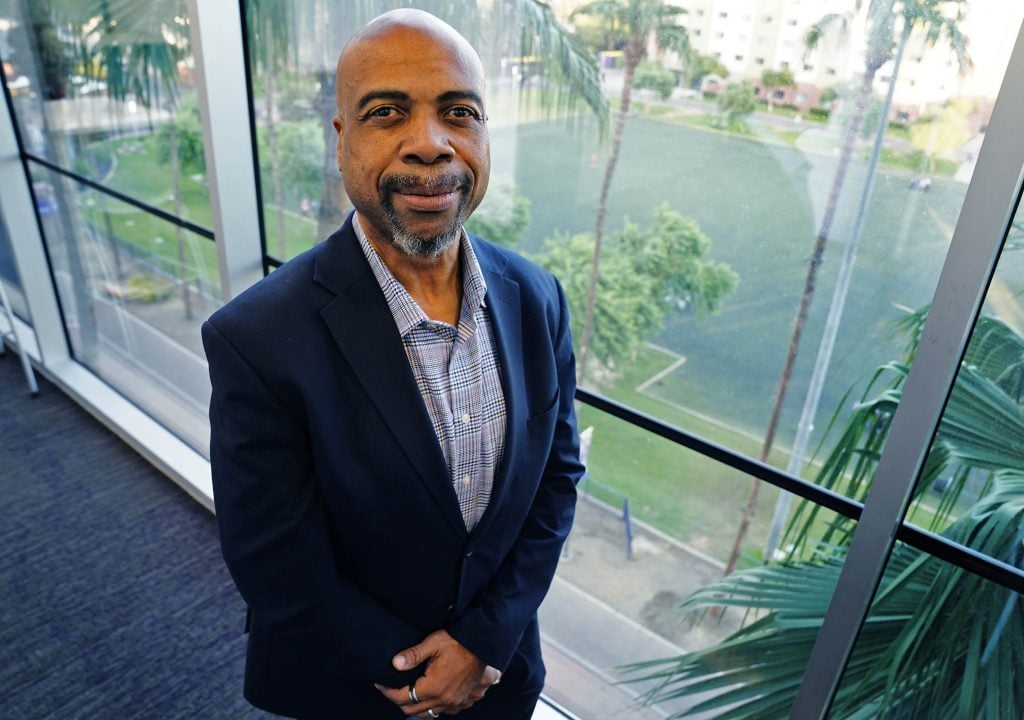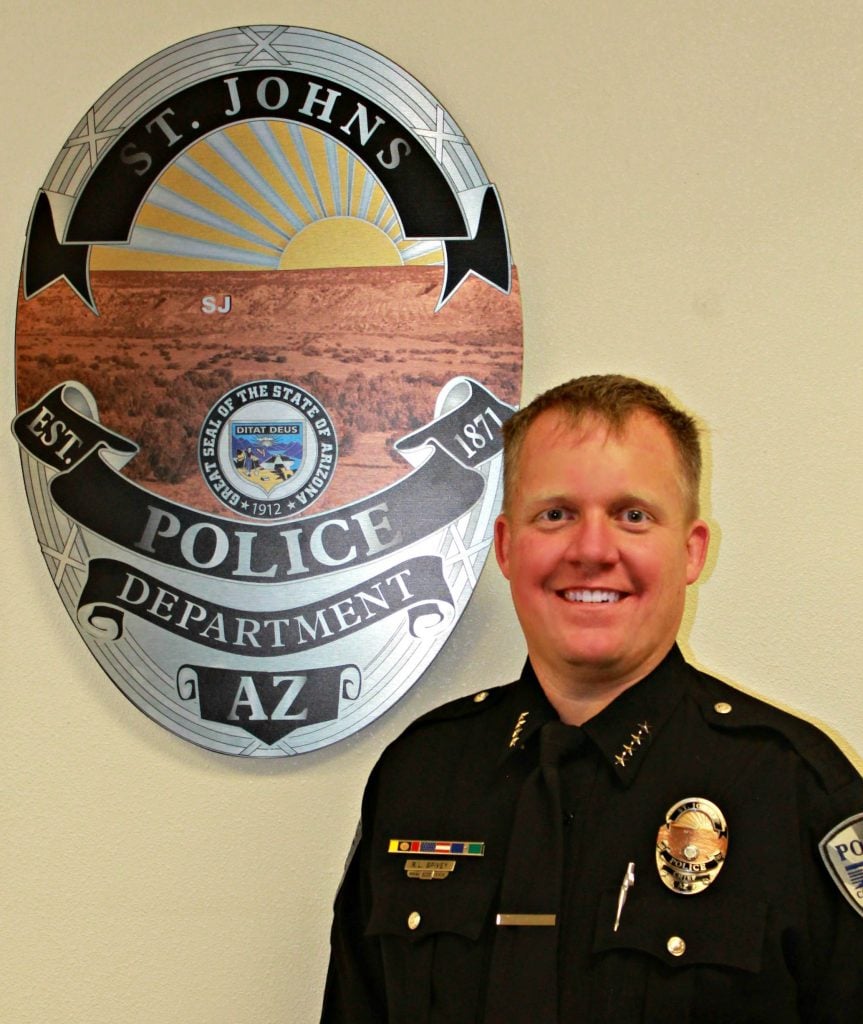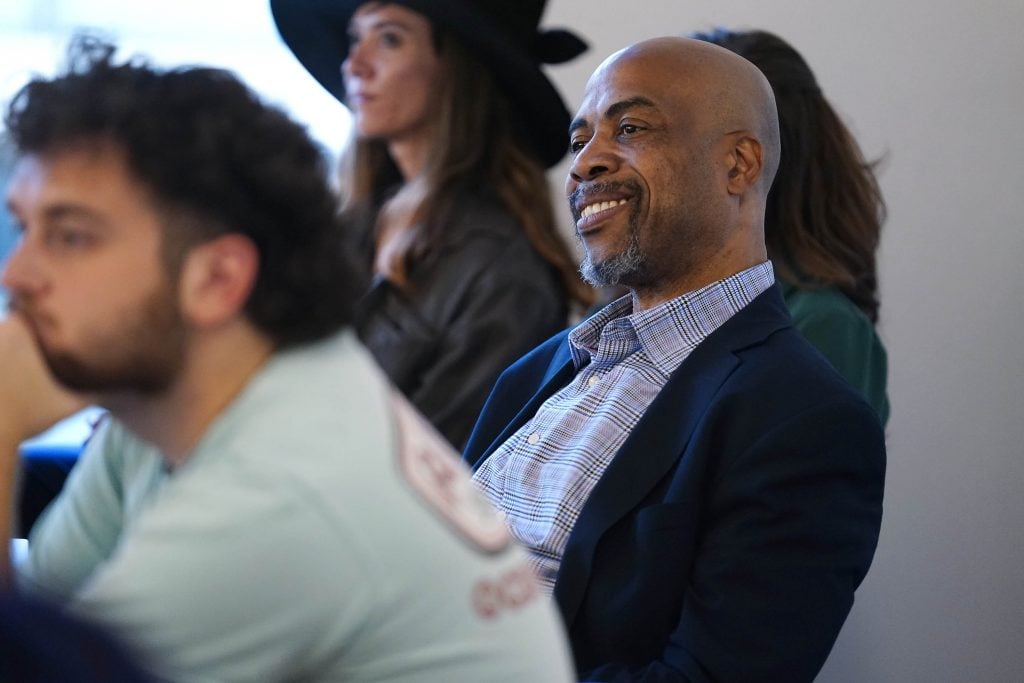
As a small-town police chief, Lance Spivey knows the public may assume that a tough cop who's serving and protecting isn’t a bookworm.
Please call him Dr. Lance Spivey. The St. Johns, Arizona, police chief has a doctorate.
“I would never be a police chief without a degree. No one in the country hires a police chief without a degree,” said Spivey, who is the former president of the Arizona Association of Chiefs of Police and member of Grand Canyon University’s Law Enforcement and Public Administration Advisory Board.
He also was able to lecture nationwide and have other law enforcement opportunities “that a small-town chief would never been able to do” without his degrees.
Spivey is an example of why GCU has launched a Bachelor of Science in Law Enforcement Advancement, an online program in the justice studies department in the College of Humanities and Social Sciences.
Justice studies instructor Dr. Cornel Stemley and Kevin Walling, chair of the department, designed the degree to educate law enforcement officers in a changing atmosphere of policing and give them the opportunity for promotions and leadership positions.

Police officers go through courses at an accredited academy, typically for several months, when joining the force. GCU analyzes those records for credit toward the GCU degree.
“Our program helps that officer who has been working three or four, or even eight or 10 years, and needs a few courses for his degree to get a promotion. A lot of officers have to have a four-year degree to get a promotion,” Stemley said.
“The college degree expands on what they already know. We have to continually revisit what we already know.”
As of October, 105 students are enrolled in the degree program.
Spivey sees the value of education for officers in the field.
“It helps them strengthen their critical-thinking skills – to be able to look at issues holistically and professionally as (law enforcement) is rapidly going through changes – in the courts, mental health, the underlying causes of criminality.
“We don’t want crime. We want research to see how we can help it go down. So you are learning research skills and problem solving. For example, why are we dealing with John Doe again and again? Well, he’s homeless. I need to know how to get him services.”
Law enforcement is shifting, using more data to drive decisions on use of resources within the department, said Stemley, a former High Intensity Drug Trafficking Area intelligence analyst with the Drug Enforcement Administration.
“An officer needs to understand the structure and different ways of looking at knowledge – principles, philosophical theories, looking at the transformation in trends – and also the rigor in writing to be able to present better evidence in court.”
The degree can benefit police departments that faced an uptick in retirements after the uproar following George Floyd’s death in 2020 and those in small towns far from universities.
The 120-credit law enforcement advancement degree also could set up officers for additional degrees that open numerous options in law enforcement. For example, GCU’s master’s in criminal justice/law enforcement can lead to work as a crime analyst.

A college education also helps an officer be more efficient in communication, as well as understanding the department structure and how to align policies and procedures in their future roles as captains or chiefs.
“Research has shown that officers who have a four-year degree have less complaints because of communication skills and being able to discuss things with diverse populations,” Stemley said.
Stemley designed a capstone course to conclude the degree, which gives students an opportunity to create a human-centered community policing strategic plan.
"When we say human-centered, we mean that the focus is on truly understanding the people within a specific community — how they live, interact and experience their social environment. Instead of applying generic solutions, this plan goes deep into the fine distinction of a community's social space," he said.
The approach helps bring complex issues to light, and reflective writing allows students to examine their assumptions, think critically about what they observed and ensure their proposed solutions are feasible.
Grand Canyon University senior writer Mike Kilen can be reached at [email protected]
***
Related content:
GCU News: She traded work boots for law books
GCU News: Officer, newly commissioned at GCU, carries on family's military tradition



































































